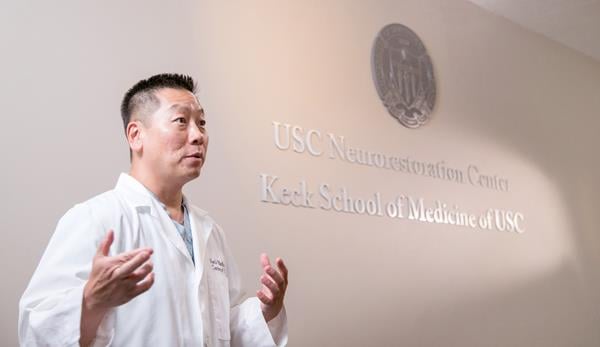People with paraplegia may someday be able to hit their stride in a so-called bionic suit thanks to an $8 million federal research grant to three Southern California universities, officials announced Wednesday.
The National Science Foundation awarded the Cyber-Physical Systems Frontier grant to USC’s Keck School of Medicine, UC Irvine and Caltech.
The five-year grant will fund the development of a fully implantable brain-machine interface device that could restore the ability to walk and restore sensation to the lower body, allowing users to “feel” while they walk.
The brain-machine device will transmit commands to a robotic exoskeleton for walking that will then transmit sensory information back to the brain.
“We’re at the point where we can create solutions similar in concept to Tony Stark’s Iron Man suit, which is neutrally integrated with him,” Dr. Charles Liu, principal investigator at the Keck School and director of the USC Neurorestoration Center, said in a statement. “Tony Stark’s brain interacts with the suit, and the suit interacts with his brain. Everything his suit feels, his brain feels. That’s the idea.”
USC’s Keck School of Medicine will work on decoding signals generated by the brain that tell the legs to walk. These signals will be decoded to control a wearable robotic exoskeleton developed by UCI, with miniature electronics that can be implanted into patients. Caltech aims to generate artificial sensation from the bionic suit, using electrodes implanted in the brain that allow users to experience the sensation of feeling when they walk.
Health business reporter Dana Bartholomew can be reached at [email protected]. Follow him on Twitter @_DanaBart.

